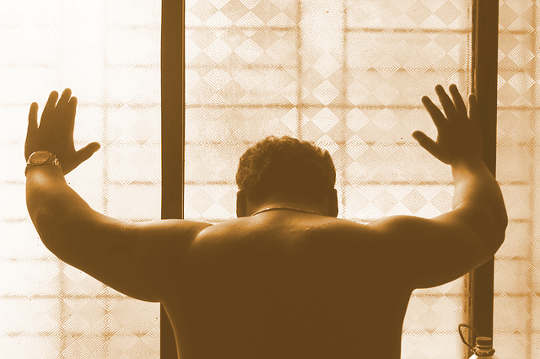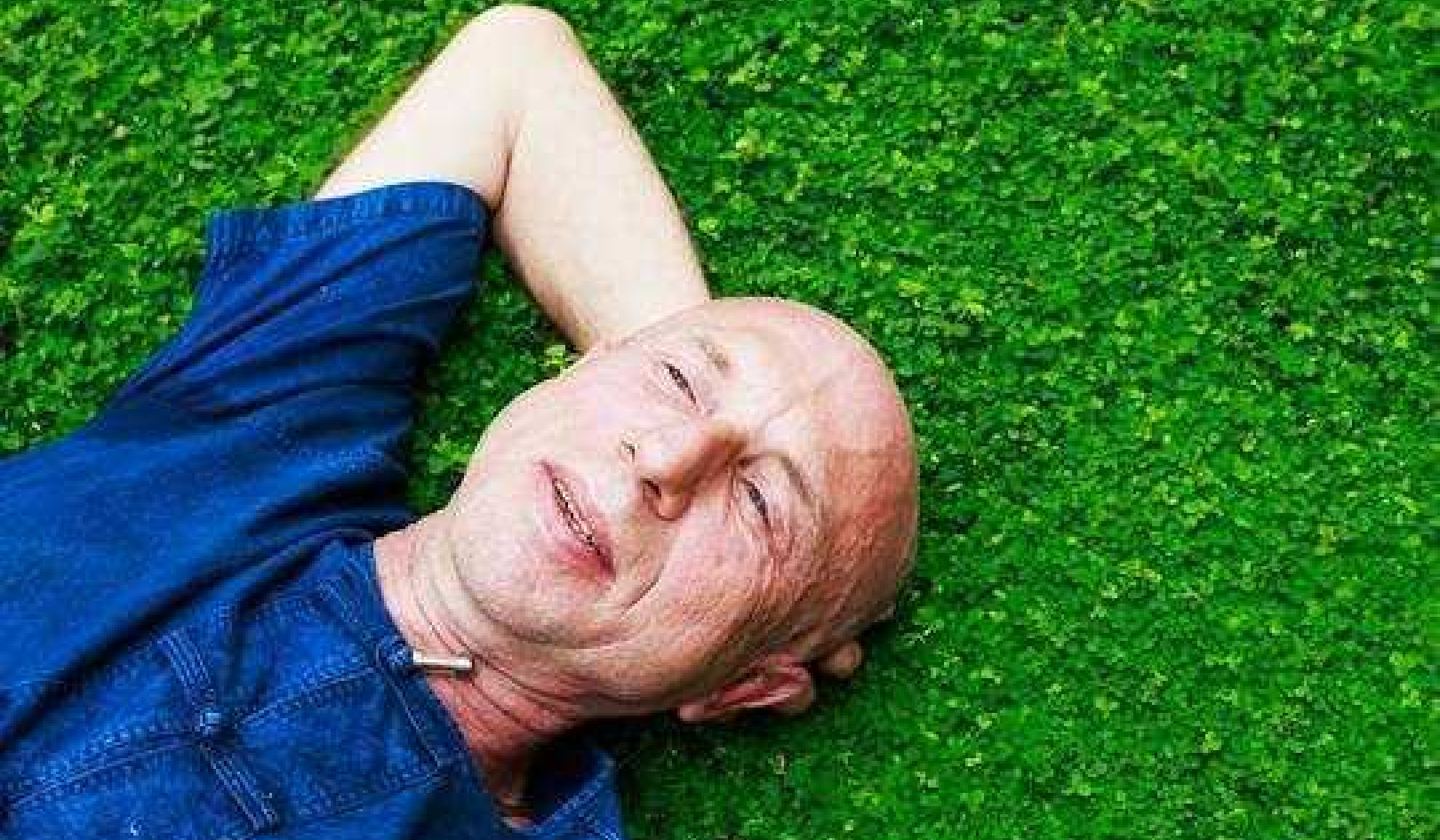
The more closely you learn to observe yourself, the sooner you can recognize the signs of depression, anxiety, and incipient agitation or mania and work with them before they gain momentum. Tending your mind is a little like tending a garden: if you’re not very attuned to what’s going on, waist-high weeds can seem to appear “out of nowhere,” healthy plants appear to die “for no reason,” and trees that were “just fine” the day before are “suddenly” infested with tiny white beetles. To an inexperienced gardener, all these disasters seem to come on suddenly and for no apparent reason, requiring all sorts of emergency measures to remediate.
On the other hand, an experienced gardener pulls out the weeds while they’re still tiny, gives the plants water and mulch before they wilt, and both notices and addresses the beetle eggs before they have a chance to hatch. Because this gardener deals with problems while they are still small, she rarely needs to resort to emergency measures or to break her back pulling up six-foot monster weeds.
At the time I was diagnosed with bipolar, I had so little awareness of my body or stress levels that I literally had to be sobbing before I realized I was sad, or be awake for three nights running before I realized I was stressed and anxious. Learning to “hear” my body and mind has been a revelation for me, and a crucial part of my stability. The following ninja skills are most effective when they’re applied early—not when you’re already in the thick of an episode. But hey, that’s what you develop insight for!
Here are some things to do when you realize you’re sliding into depression, anxiety, or mania:
Ninja Skill #1: Target Your Body
It’s easy to believe that all mood problems are best addressed through the brain—by taking more medications or thinking different thoughts. But mental ninjas know that a very sneaky way to reach the mind is through the body, and you can encourage your mood to change by changing what you’re doing with your body.
The link between posture and depression is well established, yet most people don’t think of postural adjustment as a first-line strategy against the early signs of depression. This is too bad, because adjusting your posture is a gentle, free, and highly effective way to head off depressive feelings before they “settle in” and become full depression. Simply standing or sitting with your shoulders back and head aligned can bring on a feeling of confidence and strength, replacing the defeated slump of depression. A 2015 study on posture and mood published in Health Psychology concluded:
Adopting an upright seated posture in the face of stress can maintain self-esteem, reduce negative mood, and increase positive mood compared to a slumped posture . . . Sitting upright may be a simple behavioral strategy to help build resilience to stress. The research is consistent with embodied cognition theories that muscular and autonomic states influence emotional responding. [emphasis added]
In other words, your body has a direct effect on your mood. And if you’d like to adjust your mood, adjusting your posture is a completely reasonable way to undertake it.
Posture is not the only way you can affect your mood via your body. Vigorous exercise such as walking, running, or swimming has such a tremendous impact on mood and sleep that many doctors now prescribe a daily hike or lap swim long before they’ll agree to prescribe meds for depression and insomnia. An hour a day in the water or on the trail is a highly effective therapy, and it will help you feel better in both the short and long term.
Ninja Skill #4: Question Your Unquestionables
(Editor's Note: While a total of six Ninja Skills are presented in Chapter 6 of the book, due to word count limitations we are presenting only #1, #4 and #6 in this excerpt.)
When you’re anxious or in distress, every thought that goes through your mind can seem totally real and true. You can get so wrapped up in your own thoughts you don’t even realize there are a million other possible ways of responding to the same situation.
I suffered from extreme insomnia for years. In a desperate attempt to deal with it, I developed all sorts of rigid rules about sleep: I had to get to bed by midnight or I wouldn’t fall asleep, there couldn’t be any light or noise, and if I got less than seven hours of sleep, I was going to be screwed the next day. I responded to any threat to these rules with self-righteous anger: I was right about sleep! My sleeping rules were validated by medical science! They were completely unquestionable!
This obsession with so-called sleep hygiene drove my partner insane. “If you want to learn how to sleep,” he’d say, “take your cue from people who are good sleepers. Stop reading books by bad sleepers.”
Then one night, my friend Max crashed at our house with his band when they were on tour. When Max was ready to sleep, he just sprawled out on the living room floor and went to sleep—he didn’t wait for everybody else to go to bed, or the lights to be off, or anything to change. My partner’s advice finally made sense to me: Max was a good sleeper. I shouldn’t be more careful and obsessive about sleep—I should be more like Max!
In the weeks and months that followed, I started copying Max. I stopped “going to bed” (with its elaborate rituals of stressing out and watching the clock). When I was tired, I merely sprawled out on the floor or the couch without even changing out of my clothes. I didn’t go to bed “on time”—I lay down if and when I felt tired, whether that was at eight o'clock in the evening or three o'clock in the morning.
I used to treat my sleep like something incredibly fragile, but it turned out I needed to do exactly the opposite: I had to send myself a strong message that sleep was something easy and automatic and not a big deal. Sleep had become an “unquestionable” topic for me, and it didn’t improve until I took it off its pedestal and questioned it.
If you want to learn to sleep, study people who are good at sleeping. If you want to be less anxious, study people who are low anxiety. If you want to manage your emotions better, study people who ride things out calmly. How do their beliefs and attitudes differ from yours? How does their posture differ from yours? Can you steal any of those ninja skills from them? How are your beliefs (i.e. “I am fragile”) keeping you stuck in a less-useful pattern?
Ninja Skill #6: Run Your Own Experiments
Like many people diagnosed with bipolar, I have been through periods when the suffering of life seemed unbearable, to the point that I have questioned whether it was worth living at all. During one such period, I had been in such pain for so long that I couldn’t even pretend to be coping anymore. “I don’t want you to kill yourself,” I said to myself, “But how about you practice being dead? Maybe that will work almost as well as actually being dead.”
It was the middle of the day. There was sun coming in through the window. I lay down on the living room floor and committed myself to being dead. Cars passed outside, and I felt my aversion to the engines rising up. But then I remembered that the traffic on the street wasn’t my problem anymore—I was dead! A few moments later, some of my regular worry loops started playing—“I never wrote back to so-and-so, I never finished writing that essay . . .”—but then I remembered something incredible: I was dead! I didn’t have to finish my to-do list or solve my problems.
As I lay there practicing being dead, something amazing happened: I started to feel better. A lot better. For the first time in months, I was able to let thoughts and sensations arise and pass without committing to them. It was like shrugging off a winter coat of worries and thought-loops and realizing the coat wasn’t actually me.
Far from being a morbid gesture, practicing being dead gave me a fresh perspective on life. I recovered from my depression soon after.
If you, like me, are resistant to trying out ideas you read in books or hear from other people, run your own experiments and devise your own practices. You just might stumble upon something that really helps you, exactly when you need it.
Last Thoughts On Ninja Skills
These are just a small handful of ways you can work with your moods and bipolar symptoms. As you develop more insight into who you are and how you tick, you will figure out your own personal set of ninja skills—and the ninja skills you figure out for yourself are going to be way, way better than anything a book can tell you.
Practicing ninja skills does not necessarily mean that you can eliminate all suffering and all mood changes from your life, or that you will never need medication or counseling or acupuncture or a chocolate donut or a hug from your Grandma ever again (at least, not until you are some kind of highly enlightened super ninja). In fact, a big part of mental chillness is accepting that you are not a perfect person, and you’re gonna do some things you probably shouldn’t do, make some decisions you probably would have made differently if you’d really stopped to think about them, and have some feelings you’d rather not have.
What insight does do is give you a broader perspective and a greater understanding of yourself and your life so that you can gradually stop making the same mistakes (and make new ones instead!) and stop clinging to the thoughts and behaviors that really aren’t helping you. Sure, your life will still involve a lot of suffering—most lives do—but maybe, just maybe, it will involve more peacefulness too.
©2010, 2017 by Hilary Smith. All rights reserved.
Reprinted with permission of the publisher, Conari Press,
an imprint of Red Wheel/Weiser, LLC. www.redwheelweiser.com
Article Source
Welcome to the Jungle: Facing Bipolar Without Freaking Out (Revised Edition)
by Hilary T. Smith
 Going bravely where no other bipolar book has gone before Welcome to the Jungle offers devastatingly on-target, honest?and riotously funny?insights into living with bipolar and answers some of the hardest questions facing people newly diagnosed.
Going bravely where no other bipolar book has gone before Welcome to the Jungle offers devastatingly on-target, honest?and riotously funny?insights into living with bipolar and answers some of the hardest questions facing people newly diagnosed.
Click here for more info and/or to order this book.
About the Author
 Hilary T. Smith’s first novel, Wild Awake, was an IndieNext pick, a Junior Library Guild Selection and a Canadian Children’s Book Center Best Book for Teens. Her second novel, A Sense of the Infinite, was a VOYA magazine Perfect 10 selection, a Book Riot Quarterly Pick, a finalist for the Ontario Library Association White Pine Award and a finalist for the 2016 Oregon Book Award. Her publishing blog, The Intern, was a Writer’s Digest Top 100 Websites for Writers in 2011. Visit her at www.hilarytsmith.com.
Hilary T. Smith’s first novel, Wild Awake, was an IndieNext pick, a Junior Library Guild Selection and a Canadian Children’s Book Center Best Book for Teens. Her second novel, A Sense of the Infinite, was a VOYA magazine Perfect 10 selection, a Book Riot Quarterly Pick, a finalist for the Ontario Library Association White Pine Award and a finalist for the 2016 Oregon Book Award. Her publishing blog, The Intern, was a Writer’s Digest Top 100 Websites for Writers in 2011. Visit her at www.hilarytsmith.com.
Other books by this Author
at

Thanks for visiting InnerSelf.com, where there are 20,000+ life-altering articles promoting "New Attitudes and New Possibilities." All articles are translated into 30+ languages. Subscribe to InnerSelf Magazine, published weekly, and Marie T Russell's Daily Inspiration. InnerSelf Magazine has been published since 1985.

Thanks for visiting InnerSelf.com, where there are 20,000+ life-altering articles promoting "New Attitudes and New Possibilities." All articles are translated into 30+ languages. Subscribe to InnerSelf Magazine, published weekly, and Marie T Russell's Daily Inspiration. InnerSelf Magazine has been published since 1985.






















